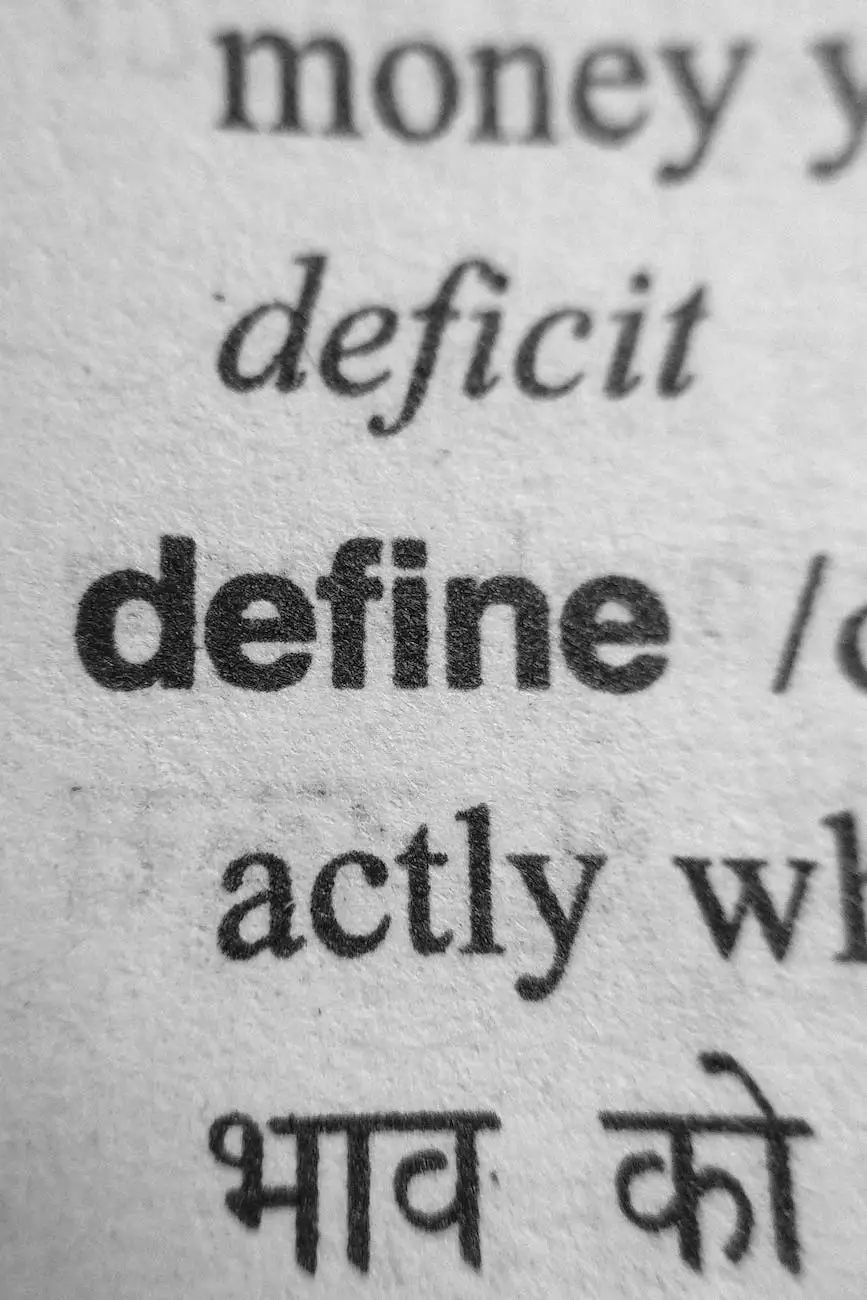English Grammar Lesson: Need, Need to, Want, & Want to
English Grammar Lessons
Are you struggling with the nuances of English grammar? Specifically, do you find yourself confused between the usage of the verbs "need," "need to," "want," and "want to"? Well, you're in luck! NJCLT, your trusted source for quality English language learning, is here to provide you with a comprehensive grammar lesson that will clarify any uncertainties you may have.
The Verb "Need"
Let's start by examining the verb "need." This versatile verb is used to express a requirement or necessity for something. Let's take a look at how it is used in various contexts:
- Need as a Main Verb: When "need" is used as a main verb, it is often followed by an object. For example, "I need a new laptop," or "She needs help with her homework." In these instances, the verb "need" indicates a strong necessity for the mentioned object or assistance.
- Need with "to" Infinitive: Sometimes, "need" is followed by the infinitive form of a verb, indicated by "to." For instance, "I need to study for my exam," or "They need to improve their communication skills." In these cases, "need" expresses the requirement or obligation to perform the action denoted by the infinitive verb.
The Verb "Want"
Now, let's move on to the verb "want." Unlike "need," "want" expresses a desire or a wish for something, rather than a necessity. Take a look at how "want" is used:
- Want as a Main Verb: When used as a main verb, "want" is often followed by an object. For example, "I want a cup of coffee," or "He wants a new car." In these cases, "want" indicates a strong desire or preference for the mentioned object.
- Want with "to" Infinitive: Similar to "need," "want" can also be followed by the infinitive form of a verb. For instance, "I want to learn how to play the guitar," or "She wants to travel the world." In these situations, "want" expresses the aspiration or intention to carry out the action indicated by the infinitive verb.
Understanding the Differences
Now that we have explored the individual usages of "need," "need to," "want," and "want to," let's delve deeper into their distinctions to ensure a clearer understanding:
- Expressing Necessity: Both "need" and "need to" can indicate a requirement, but "need" on its own emphasizes a stronger sense of necessity compared to "need to." For example, "I need a doctor" suggests a more urgent necessity than "I need to see a doctor."
- Desire versus Obligation: While both "want" and "need" express a preference or a desire, "want" conveys a sense of choice and personal preference, whereas "need" often signifies a more obligation-driven necessity. For example, "I want a snack" implies a personal craving, whereas "I need food" suggests a necessity due to hunger.
Examples and Usage Tips
To solidify your understanding of these verbs, here are some additional examples and usage tips:
Examples with "Need" and "Need to":
"I need a break from work" - Here, "need" indicates a strong necessity for time off.
"She needs to finish her assignment" - In this case, "need to" signifies an obligation to complete the assignment.
Examples with "Want" and "Want to":
"They want a bigger house" - This example showcases a desire for a larger residence.
"He wants to become a professional athlete" - Here, "want to" expresses the aspiration to pursue a career in sports.
Remember, practice makes perfect! Try incorporating these verbs into your daily conversations and writing to enhance your English language skills. The more you use them correctly, the more natural they will become in your linguistic repertoire.
Summary
In summary, the differences between "need," "need to," "want," and "want to" boil down to nuanced variations in necessity and desire. While "need" emphasizes a stronger requirement, "want" expresses personal preference. Additionally, when followed by the infinitive form of a verb, both "need to" and "want to" indicate an obligation or an aspiration, respectively.
Now armed with this comprehensive English grammar lesson, you can confidently navigate the usage of these verbs in various contexts. NJCLT is thrilled to support your language learning journey, and we hope this guide has been both informative and helpful.
For more in-depth grammar lessons, vocabulary exercises, and language resources, visit NJCLT today!










